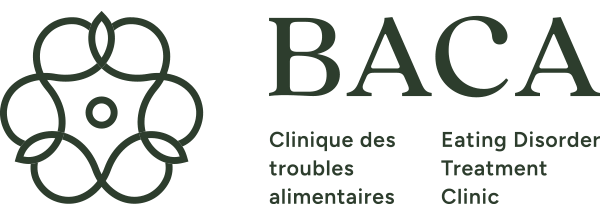Eating disorders are characterized by obsessive and problematic behaviors surrounding food and weight. These conditions can be very complex and severe. Furthermore, they often have a negative impact on all aspects of the individual’s life.
Anorexia nervosa, bulimia nervosa and binge eating disorder are the primary eating disorders, but there are various other types of eating disorders as well. These disorders can vary in intensity and severity and may change over time. To add, more than one disorder can exist at the same time.
What Are Residential Programs for Eating Disorders?
Residential programs for eating disorders provide intensive treatment in a safe and supportive environment. Patients live at the treatment center and participate in therapy, meal planning, and other activities designed to help them recover from their eating disorders. Residential programs vary in length, but most last around three months.
Residential programs offer several benefits. They provide a structure that can be helpful for those who have difficulty maintaining abstinence or adhering to a meal plan. Close monitoring in residential programs can also benefit those struggling with dangerous or self-harming behaviors related to their eating disorder. Finally, the support and accountability offered by residential programs can be invaluable for those trying to overcome an eating disorder.
Despite these benefits, residential programs also have some drawbacks. For one, they can be expensive. Plus, not all insurance plans cover the cost of treatment. Additionally, patients may feel limited by the lack of independence and freedom in a residential program.
Hence, it is essential to weigh the pros and cons of residential treatment before deciding whether it is right for you or your loved one.
What Treatments Can Someone With an Eating Disorder Expect at a Residential Program?
At a residential treatment program for eating disorders, individuals can expect to participate in a variety of therapeutic treatments and activities. These may include individual and group therapy sessions, educational workshops on nutrition and healthy eating, cooking classes, recreational activities, and outings that promote physical health and wellness.
In addition, patients will typically have regular medical checkups with a doctor or nurse specialist to monitor their physical health and progress in treatment.
For patients with serious or life-threatening eating disorders, residential treatment may be the only option for receiving the level of care and support needed to recover. For others, residential treatment may be recommended after completing a less intensive outpatient program or being discharged from an inpatient unit.
Regardless of the level of care required, residential programs provide a safe and supportive environment for individuals to begin their journey towards recovery.
Group Therapy for People With Eating Disorders
Group therapy can be an extremely beneficial tool for those struggling with eating disorders. In group therapy, individuals can share their experiences and feelings with others going through a similar journey. This can provide a sense of understanding and support, which can be crucial in the healing process.
Group therapy can also help individuals learn new coping mechanisms and ways of dealing with their disorder. It can be a safe place to express oneself and experiment with different ways of managing the disorder. Lastly, group therapy can provide a sense of community and belonging, which is often missing for those struggling with eating disorders.
While individual therapy is an integral part of treatment, group therapy can be a valuable complement. If you are considering a residential treatment program for your eating disorder, be sure to ask about the type of group therapy offered.
The Value of Supervised Meals and Post-Meal Support Group
A treatment involving supervised meals followed by a post-meal support group provides invaluable help for individuals with eating disorders. The structure and routine of the meals help provide a sense of normalcy and stability during what can be an otherwise chaotic time.
The group discussion after meals allows participants to share their experiences and feelings related to the meal, providing an opportunity for support and connection. This setting also allows for education around food and nutrition, which can be beneficial for those struggling with eating disorders.
Overall, the supervised meals and post-meal support group provide a safe and supportive space for participants to explore their relationship with food and nutrition.
What Happens in Individual Nutritional Consultation Sessions?
In individual nutritional consultation sessions, participants work one-on-one with a registered dietitian to develop a personalized meal plan. During these sessions, participants discuss their dietary history, current eating habits, and goals for the upcoming week.
The dietitian also provides educational materials and helpful tips on healthy eating and living a balanced lifestyle.
Together, they create a menu tailored to meet the participant’s individual needs and preferences.
How Individual Psychotherapy Sessions Help With Eating Disorders
One-to-one psychotherapy sessions play a vital role in the treatment of eating disorders. In these sessions, the therapist will work with the individual to help them understand their thoughts and feelings about food, weight, and body.
The therapist will also help the individual develop healthy coping mechanisms for difficult emotions and negative thoughts. This can be a very helpful tool in the recovery from an eating disorder.
Therapeutic Activities and Field Trips for Eating Disorders
Therapeutic activities and field trips can provide a much-needed respite from the everyday treatment routine. They can also offer opportunities for growth and mastery, enhancing self-esteem and body image.
Field trips are essential aspects of our clinic’s Day Treatment Program. They provide an opportunity for clients to explore different parts of their city and engage in fun and relaxing activities.
They can also be a great way for patients to connect with nature and enjoy some fresh air. Spending time outdoors can be refreshing and calming and can help promote positive mental health.
Some field trips that may be beneficial for individuals with eating disorders include:
- Going for a nature walk in a nearby park or nature reserve.
- Visiting a farmers market to learn about where food comes from and how it is grown/produced.
- Taking a cooking class together to learn how to prepare healthy meals.
- Going to the beach or hiking mountains for fresh air and exercise.
- Visiting a local art museum or historical site to appreciate the beauty of the world around us.
Apart from therapeutic field trips, our program includes other activities such as cooking workshops and drama therapy.
Therapeutic cooking workshops are an excellent way for patients to learn about healthy eating and cooking. They can prepare recipes under the guidance of a therapist and then enjoy the fruits of their labor together as a group. This is a fun and interactive way to learn about cooking and nutrition and bond with others in the program.
Drama therapy is another excellent way for patients to explore their emotions around food and eating. They can act out scenes related to food and dieting or use drama therapy to explore other relevant issues. This is a creative and expressive way to deal with emotional problems and can be very helpful in healing from an eating disorder.
Medical Follow-Up
As determined by the treatment team, medical follow-up with our doctor will consist of regular check-ups to ensure that the individual is on track with their mental and physical health goals. In addition, our doctor may recommend medications or other treatments as needed.
Are you suffering from an eating disorder? Do you want to know if a residential program is the right treatment for you? Call us today at (514) 544-2323 | 1-833-544-2323 or contact us here if you want to learn more about our treatment programs for eating disorders in Montreal.
Royalty-free Images supplied from PixaBay as part of SEO service from 3R

